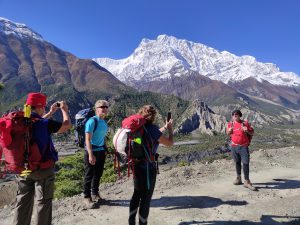
In 2026, Nepal is set to graduate from the United Nations’ Least Developed Country (LDC) category and enter the ranks of developing nations. This is a moment of national significance, signaling decades of gradual but meaningful improvement in health, education, and economic resilience.
However, behind the milestone lies a range of critical questions: Are we prepared for the post-LDC world? Can Nepal transition from reliance on external preferences to building a competitive economy? Will this graduation elevate us, or only expose our vulnerabilities?
Graduation is not a declaration
Graduation, while an indicator of progress, would bring significant changes to our global economic relationships. The privileges Nepal currently enjoys as an LDC—preferential trade access, concessional loans, technical assistance, and longer policy transition periods—will be rolled back. Without enough preparation, Nepal may face a scenario where hard-won development gains would prove unsustainable in the long run.
Nepal qualified for LDC graduation after fulfilling two of the three criteria set by the UN Committee for Development Policy: the Human Assets Index (HAI) and the Economic Vulnerability Index (EVI). Nepal’s GNI per capita remained below the graduation threshold; however, strong performance in human development and reduced economic vulnerability enabled it to meet two out of three criteria required for LDC graduation in both 2018 and 2021 reviews. But this does not mean our structural weaknesses have disappeared.
Graduation is not a declaration of readiness—it is a call to action.
Nepal currently benefits from duty-free, quota-free (DFQF) access to major markets such as the European Union through the Everything But Arms (EBA) initiative, as well as preferences from countries like Canada, Australia, and Japan. Once Nepal graduates, these benefits will no longer be automatic. For instance, our garment exports, already struggling with high production costs, could face tariffs of 8–12%, significantly reducing their competitiveness in European markets.
The worrisome context
Similarly, Nepal has historically benefited from concessional loans and grants through institutions like the World Bank’s International Development Association (IDA) and the Asian Development Bank (ADB). Post-graduation, Nepal will begin to transition toward non-concessional financing, which will likely increase its debt servicing burden. This is worrisome in a context of growing fiscal deficit, limited domestic resource mobilization, widening trade deficit and declining capital formation.
As an LDC, Nepal enjoys special and differential treatment at the WTO, including extended transition periods and flexibility in implementing intellectual property rights and subsidy rules. These flexibilities will tighten post-graduation, and Nepal will be expected to align with more rigorous trade obligations. This may further constrain our industrial and agricultural policy space.
As Nepal is transitioning from LDC to developing nation status, we should not overlook our current context of slow economic growth, mediocre productivity, prevalent unemployment, and inefficient governance. Public frustration is rife over corruption, political instability, mass youth outmigration, and lack of trust between citizens and institutions
Explore and prepare
For Nepal to continue enjoying the benefits of graduation, the government should actively pursue inclusion in schemes like the EU’s GSP+ schemes, which continue to offer tariff reductions post-LDC to countries that meet criteria of international conventions on human rights, labor rights, environmental protection, and governance benchmarks.
Nepal should also explore bilateral trade deals not only with key partners like India, China, and the U.S., but also explore east among the ASEAN nations.
Nepal must move up the value chain by promoting sectors such as information and communication technology (ICT), agro-processing and high-value agriculture, value based high end tourism, attract more foreign investment in renewable energy (especially hydropower ), mobilizing forest and mines, herbal and natural niche products like yarsagumba, Himalayan honey.
Further, Nepal may prepare for the gradual decline in concessional foreign aids by efficient management of revenue systems, broadening the tax bases, involving NRN community through diaspora bonds for infrastructure, green financing for climate projects and utilizing remittance for productive investment, learning from nations like Bangladesh, Ethiopia and Mexico.
Call for planning, reform, and bold leadership.
For these, establishment of quality certification labs, digital customs procedures, testing centers and trade facilitation services is a must, meeting international standards. The government must increase public investment and initiate the PPP partnership model in logistics, warehousing, and supply chains.
It would be a good idea to establish a Graduation Strategy Coordination Task Force under the National Planning Commission (NPC) to monitor and supervise preparations, identify and mitigate risks, and coordinate with development partners, private sector, local governments, business communities, and civil society across the country—not just Kathmandu. The government must work closely with FNCCI, Nepal Chamber of Commerce, Exporters’ associations to identify the sector’s priorities, advocate for fair trade terms, and invest in research and innovation.
At the same time, civil society organizations must act as watchdogs to ensure the graduation does not overlook the vulnerable communities, indigenous groups, and women—especially as aid and social protection budgets would plummet.
Nepal’s graduation from the LDC category is a milestone to be celebrated—but not without caution. It is a turning point that requires thoughtful planning, structural reform, and bold political leadership. Graduation is not just the end of special treatment—it is the beginning of a higher level of expectation, both globally and domestically. With the right policies, proactive diplomacy, and inclusive institutions, graduation can be the start of a new era—one where Nepal takes charge of its destiny with greater confidence and credibility on the global stage.

























